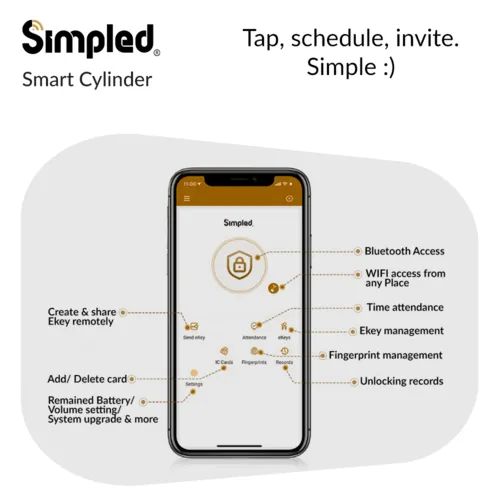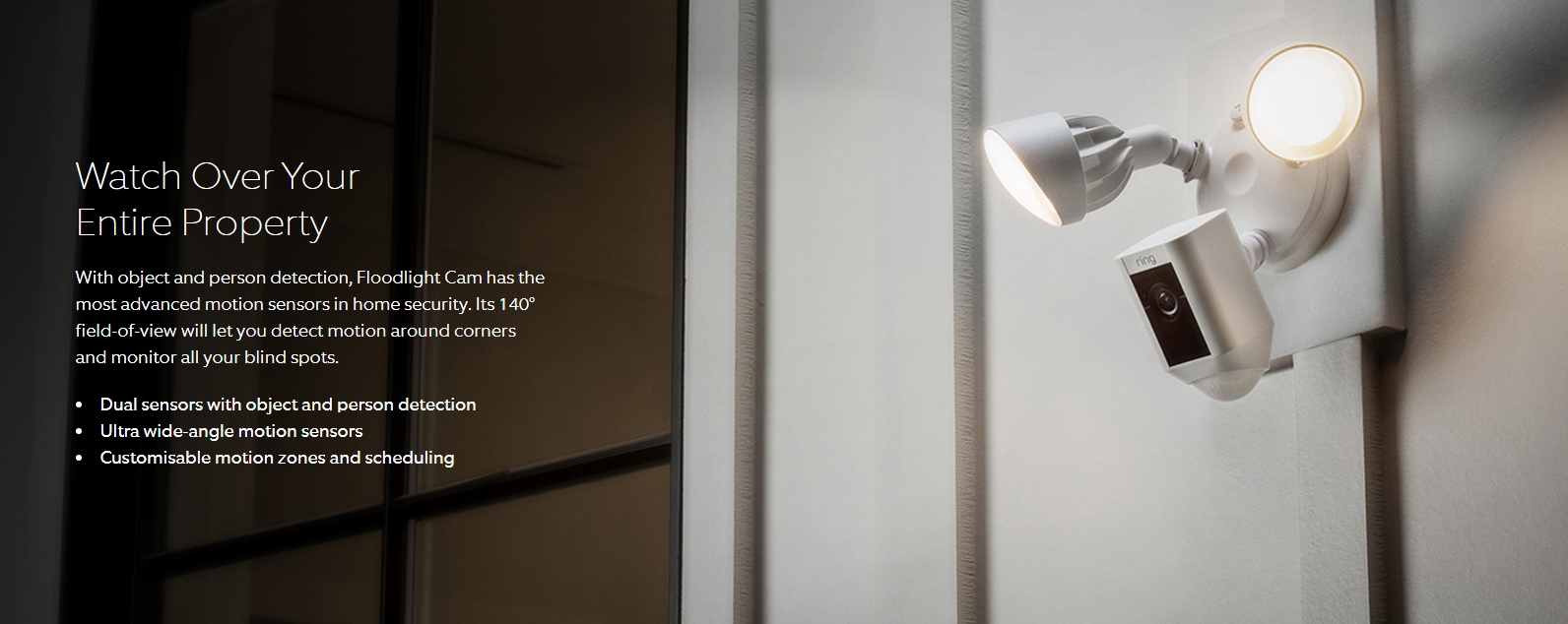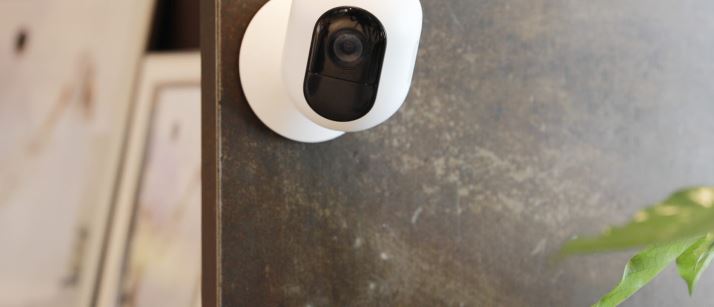How to Protect Your Smart CCTV System from Hackers and Cyber Threats

Why Securing Your Smart CCTV System is Important
Securing your smart CCTV system is essential for protecting your property and maintaining privacy. Not securing your smart CCTV system can result in various risks, including hacking, cyber threats, and unauthorised access to footage. Hackers can gain access to your system and use it for malicious purposes, such as spying or theft. Additionally, cyber threats can compromise the system's functionality, leading to lost footage or reduced performance.
On the other hand, securing your smart CCTV system against hackers and cyber threats provides several benefits: It protects your property and assets from potential security threats. It ensures that only authorised personnel can access the footage, maintaining privacy and confidentiality. A secure smart CCTV system provides peace of mind by allowing you to monitor your property remotely without worrying about unauthorised access or data breaches.
Securing your smart CCTV system is crucial for protecting your property and maintaining privacy. By taking necessary precautions such as using strong passwords, regularly updating firmware, and enabling two-factor authentication, you can effectively secure your system against hackers and cyber threats. Regular maintenance is also essential to ensure the system functions optimally and lasts longer, saving you money on costly repairs or replacements. If you encounter persistent problems with your CCTV system despite regular maintenance, consider contacting a professional installer or technical support for further assistance.
Best Practices for Securing Your Smart CCTV System
Securing your smart CCTV system is essential for protecting your property and maintaining privacy. Below are some best practices to consider:
Firstly, change the default username and password to a strong, unique one. Default login credentials are easy to guess, making your system vulnerable to hacking attempts. A strong password should contain a mix of uppercase and lowercase letters, numbers, and symbols.
Secondly, keep software up-to-date with the latest security patches and firmware updates. Regularly updating software ensures that known vulnerabilities are patched, reducing the risk of cyber threats.
Thirdly, use two-factor authentication for added security when accessing remotely. Two-factor authentication adds an extra layer of security by requiring a code or token and a username and password.
Lastly, disable remote access or limit access only to trusted devices/networks if not needed. Remote access increases the risk of unauthorised access or data breaches. Disabling remote access when not in use or limiting it to trusted devices/networks reduces the risk of security threats.
Securing your smart CCTV system is crucial for protecting your property and maintaining privacy. By implementing best practices such as changing default login credentials, keeping software up-to-date, using two-factor authentication, and disabling remote access when not needed, you can ensure that your system provides reliable security measures for your property.
Network Security Measures for Smart CCTV Systems

Securing your smart CCTV system's network is essential for protecting your property and maintaining privacy. Below are some network security measures to consider:
Firstly, enable encryption on all data transmissions between cameras, recorders, and other devices in the network. Encryption ensures that the data transmitted over the network is secure and cannot be intercepted by unauthorised personnel.
Secondly, create a separate VLAN/subnet for the smart CCTV system to isolate it from other devices on the same network. Isolating the system from other devices reduces the risk of unauthorised access or data breaches.
Thirdly, use a firewall to block unauthorised traffic through open ports used by the smart CCTV system. A firewall provides an added layer of security by blocking unauthorised traffic from entering or leaving the network.
Lastly, avoid public wifi networks when accessing remotely. Public wifi networks are vulnerable to hacking and cyber threats, making them unsuitable for accessing sensitive information such as CCTV footage.
Securing your smart CCTV system's network is crucial for protecting your property and maintaining privacy. By implementing network security measures such as enabling encryption, creating a separate VLAN/subnet, using a firewall, and avoiding public wifi networks when accessing remotely, you can ensure that your system provides reliable security measures for your property.
Additional Security Measures for Smart Cameras
Smart cameras are an essential component of a modern security system. However, they can be vulnerable to hacking and unauthorised access without proper security measures. Here are some additional security measures to consider:
Firstly, set up motion detection alerts so you are notified immediately of any unusual activity around the camera area. This feature allows you to monitor your property remotely and take appropriate action if necessary.
Secondly, disable unused features such as audio recording if not required. Unused features can provide an entry point for hackers or unauthorised personnel to access the system.
Thirdly, restrict physical access to cameras by placing them out of reach. Physical camera access can compromise functionality and make them vulnerable to tampering or theft.
Lastly, invest in cameras with built-in encryption technology. Encryption technology ensures that data transmitted over the network is secure and cannot be intercepted by unauthorised personnel.
Securing your smart cameras is crucial for protecting your property and maintaining privacy. By implementing additional security measures such as setting up motion detection alerts, disabling unused features, restricting physical access, and investing in cameras with built-in encryption technology, you can ensure that your system provides reliable security measures for your property.
User Account Management Tips
User account management is crucial for maintaining the security of your smart CCTV system. Here are some tips to consider:
First, create strong passwords containing uppercase, lowercase, numbers, and symbols. Strong passwords are difficult to guess and provide an added layer of security.
Secondly, avoid common words like "password," "admin," "123456," etc. These passwords are easy to guess and make your system vulnerable to hacking attempts.
Thirdly, do not share login credentials with anyone else who doesn't have permission. Sharing login credentials can compromise the security of your system and make it vulnerable to unauthorised access.
Fourthly, restrict user permissions based on their roles/responsibilities within the organisation. Restricting user permissions ensures that only authorised personnel can access sensitive information and reduces the risk of data breaches.
User account management is crucial for maintaining the security of your smart CCTV system. By implementing these tips, such as creating strong passwords, avoiding common words, not sharing login credentials, and restricting user permissions based on roles/responsibilities, you can ensure that your system provides reliable security measures for your property.
Firmware Updates & Services Running On Camera
Regular firmware updates and turning off unnecessary services running on the camera are crucial for maintaining the security of your smart CCTV system. Here are some tips to consider:
Firstly, update firmware regularly. Firmware updates provide security patches and bug fixes that ensure your system is up-to-date and secure.
Secondly, turn off unnecessary services running on the camera. Services such as remote access or audio recording can provide entry points for hackers or unauthorised personnel to access the system.
Thirdly, ensure that any necessary services running on the camera are secure and up-to-date. Strong passwords and encryption technology should secure cloud storage or remote access.
Updating firmware regularly and turning off unnecessary services running on the camera is crucial for maintaining the security of your smart CCTV system. By implementing these tips, you can ensure that your system provides reliable security measures for your property.
Network Security Measures for Smart CCTV Systems

Maintaining the security of your smart CCTV system requires additional network security measures beyond those mentioned earlier. Here are some further tips to consider:
Firstly, avoid public DNS servers and use private ones like Google DNS or OpenDNS. Private DNS servers offer better security and privacy than public ones.
Secondly, turn off the WPS (wifi Protected Setup) feature in wireless router settings. The WPS feature can be vulnerable to hacking attempts and should be disabled to ensure the security of your system.
Thirdly, enable HTTPS protocol for accessing the DVR/NVR/camera web interface. HTTPS provides secure communication between the web interface and the user's device, ensuring that data transmitted over the network is secure.
Lastly, set up email alerts when someone logs into your system remotely. Email alerts notify you immediately if someone logs into your system remotely and allows you to take appropriate action if necessary.
Securing your smart CCTV system's network requires additional measures such as avoiding public DNS servers, turning off wps feature, enabling https protocol, and setting up email alerts when someone logs into your system remotely. By implementing these tips, you can ensure that your system provides reliable security measures for your property.
Physical Security Measures
Physical security measures are essential to ensure the safety and security of your smart CCTV system. Here are some tips to consider:
Firstly, restrict physical access to cameras by placing them out of reach. This measure ensures that unauthorised personnel cannot tamper with or damage cameras.
Secondly, invest in tamperproof cameras and housings. Tamperproof cameras and housings provide an added layer of security against vandalism or theft attempts.
Lastly, consider installing surveillance signs around the property to deter potential intruders. Surveillance signs can act as a visual cue for potential intruders that they are being monitored and can discourage them from attempting any criminal activity.
Physical security measures are crucial for maintaining the security of your smart CCTV system. By implementing these tips, such as restricting physical access, investing in tamperproof cameras and housings, and installing surveillance signs around the property, you can ensure that your system provides reliable security measures for your property.
Backups & Recovery
Regularly backing up CCTV footage is crucial for ensuring access to recorded footage in case of system failure or data loss. Here are some tips to consider:
Firstly, back up CCTV footage to an external hard drive or cloud storage. External hard drives provide a physical backup option, while cloud storage offers remote access to backup data.
Secondly, conduct regular security audits to identify vulnerabilities and take necessary actions to mitigate them. Regular security audits help ensure your system is secure and up-to-date with the latest security measures.
Lastly, ensure that backups are encrypted and secured with strong passwords. Encrypted backups provide an added layer of security against unauthorised access.
Backing up CCTV footage regularly and conducting regular security audits are crucial for maintaining the security of your smart CCTV system. By implementing these tips, such as backing up data to external hard drives or cloud storage, conducting regular security audits, and securing backups with strong passwords, you can ensure that your system provides reliable security measures for your property.
VPNs for Remote Access
Using a Virtual Private Network (VPN) for remote access to your smart CCTV system is a crucial security measure. A VPN encrypts all data transmissions and hides your IP address, ensuring that all communication between your device and the system is secure.
When you connect to a VPN, your device creates a secure and encrypted connection with the network. This connection ensures that all data transmitted between your device and the network is protected from unauthorised access or interception.
VPNs also offer an added layer of security by hiding your IP address. Your IP address is a unique identifier that can be used to track your online activity and location. By hiding your IP address, VPNs provide additional privacy and security.
Using a VPN for remote access to your smart CCTV system is a crucial security measure. By encrypting all data transmissions and hiding your IP address, VPNs ensure that all communication between your device and the system is secure.
MAC Address Filtering & SSID Name Change
Enabling MAC address filtering and changing the default SSID name of your wireless router are two simple yet effective measures to enhance the security of your smart CCTV system.
MAC address filtering is a feature available in most routers that allows you to restrict access to your network based on device MAC addresses. By enabling this feature, you can limit access to only authorised devices, preventing unauthorised access from potential intruders.
Changing the default SSID name of your wireless router frequently is another useful security measure. The SSID name is the name of your wireless network that appears when devices search for available networks. Changing the SSID name frequently makes it harder for potential intruders to identify and target your network.
Enabling Mac address filtering and changing the default SSID name of your wireless router are two simple yet effective measures to enhance the security of your smart CCTV system. By implementing these tips, you can ensure that your system provides reliable security measures for your property.
Final Thoughts
As smart CCTV systems become more prevalent, it is essential to take proactive measures to secure them against hackers and cyber threats. Implementing best practices can provide peace of mind and protect privacy/security.
Smart CCTV systems are vulnerable to cyber threats, and ensuring their security is crucial. By taking proactive measures such as enabling MAC address filtering, changing the default SSID name of your wireless router frequently, regularly backing up CCTV footage to an external hard drive or cloud storage, and using a VPN for remote access, you can ensure that your system provides reliable security measures for your property.
Implementing best practices can provide peace of mind and protect privacy/security. By following these tips, you can rest assured that your smart CCTV system is secure and protected against potential intruders.
It is also important to seek professional help from experts specialising in securing smart CCTV systems. These professionals can guide you in implementing best practices and offer solutions to any security concerns.
Securing smart CCTV systems against hackers and cyber threats is crucial. By taking proactive measures, implementing best practices, and seeking professional help from experts, you can ensure that your system provides reliable security measures for your property.
